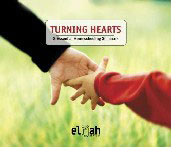
E-journal November 17, 2009 |
Don't Worry, Be Happy! View past ejournals HERE>> Sign up for our newsletter below. I’m not sure why I’m even writing on this topic. Perhaps because I just went through a several year stint adjusting to major life changes such as children leaving home, parents dying, loss of a beloved animal companion, rearrangement of family relationships, closing of a family business, and, yes, reaching a milestone birthday. For the past five or so years, I’ve been in transition from one set of life roles to another. And transition is never easy. No matter how staunch your belief in God, life transitions tend to carry with them a sense of loss as one chapter of your life comes to an end another begins. So it’s no wonder that last month a study caught my eye about how women have become more and more unhappy in the past 30 years and how they also tend to grow sadder as they grow older...which prompted me to write this article. (You can read the study HERE if you want.) Ever since I read that study on women’s declining happiness, I’ve been researching what it is that makes us happy, and how we can become even happier than we already are. And in this article and the next, I’ll share a distillation of what I’ve learned. But first, thank you for your comments. Many of you took the time to give me feedback on the articles. The most common comment was something along the lines of, “But isn’t our society already just one big selfish, hedonistic pursuit of happiness?” So, let me begin with a disclaimer. I’m not encouraging irresponsible, selfish, addictive, hedonistic, obsessive pursuit of happiness. To me, that kind of behavior is more an attempt to escape unhappiness than it is a pursuit of happiness. We are a society intent on finding ways of sedating and controlling our uncomfortable, nagging feelings of unhappiness. If we can’t dull our inner unhappiness through some sort of “drug” (any activity or substance that we use to keep our unhappiness at bay, including social activities, exercise, sports, work, making money, church, sex, eating, as well as activities that involve the use of addictive substances), then we will try to do so by manipulating people and situations. So we are not really maximizing our happiness…we are trying to minimize our unhappiness. In fact, studies report that having as many pleasures as possible or being able to amplify pleasure (for example, by taking a drug), doesn’t add to overall happiness. Components of Happiness 1. Healthy Relationships As Richard Koch, author of The 80/20 Principle explains, “We consistently undercultivate what is important.” Koch says, Twenty percent of what we do leads to 80 percent of the results we seek [in this case, happiness]; but 80 percent of what we do leads to only 20 percent. We are wasting 80 percent of our effort on low-value outcomes. The depressing fact of the 80/20 principle is that we are spending a lot of our time, energy, and money on things that have little value to us and contribute very little to our happiness. But the promise of the 80/20 principle is that, once we put it into practice, we can work less, enjoy more, earn more, and achieve more. Ellyn Resources The 80/20 Principle by Richard Koch. Did you know that 80% of your success in any endeavor comes from 20% of your efforts? The 80/20 Rule is a double edged sword, because 80% of your activity will only produce 20% of the results you want, so it’s better to zero in on the 20% in every area—your personal life, your relationships, your business—that produces the most results. Koch not only thoroughly explains the 80/20 Principle and the effect it has on all aspects of your life and business, but he gives valuable “keys” for enhancing the 20% that creates the real results. The Path of Least Resistance by Robert Fritz. I love Robert Fritz' work and have attended several of his workshops. To me, this is his most important book because it clearly explains how most of us tend to live our lives by taking the path of least resistance, instead of by making conscious choices about how we want our lives to be and then creating that life for ourselves like an artist creates a painting. Your Life as Art by Robert Fritz. Robert's work is about recognizing what really matters to you, and then creating your life based on that. So in a way, he teaches you to nourish and equip your deepest desires and highest aspirations so that you can live a life centered around those. You are a creator, whether you acknowledge it or not. You create your relationships, your attitudes, your surroundings, your career, and yes, music and paintings and inventions and sculptures and books. So why not create the life you really care about? This book is about looking at your own life as a work of art that you create based on what really matters to you.
Left Brained Finance for Right Brained People is hands down the best book we've ever found about money and finances and how to manage both. It could be used as the core curriculum for a Money and Finance unit with junior highs and up or by parents to have an overall understanding of money and how it works so they can teach their children. With over 4,000 copies sold in just a few months, I Saw the Angel in the Marble is becoming a home schooling best seller! This book represents the best of 15 years of Elijah Company articles. Find our more HERE>>
|
Our Favorite Books About Thanksgiving
The Mayflower Adventure by Colleen L. Reece. Twelve-year-old John and his sister Sarah accompany their parents on the Mayflower as it sails to the New World where they hope to enjoy freedom of worship.
Home Business Resources
If you missed one of our From Home School to Home Business Conferences, you missed a great time.People who attended told us that it changed their lives—not only in the area of home schooling, but also in the area of creating their own sources of home income.This set is huge and filled with useful and encouraging information about how to be successful at home schooling and at home business! Find out more about this life-changing set of CDs HERE>> Building the Business of Your Dreams (8 CD Set) I've had requests for just the business portion of the From Home School to Home Business Seminar, so have developed a set of the business CDs from that set. It contains 8 CDs and includes sessions on The Entrepreneurial Mind, Multiple Streams of Home Income, Discovering Your Ideal Life and Ideal Business (2 CDs) , Developing a Business Plan (2 CDs), and The Importance of Business Relationships. Plus, there is a very important and insightful interview on Redeeming the Marketplace. Find out about this life-changing set of CDs HERE>>
Any article appearing on this website may be copied or forwarded electronically provided that proper credit is given and that the article is not substantively modified.
No article may appear in whole or in part in a publication sold for profit or as part of any commercial endeavor without the written consent of Home School Marketplace. Any reprint must include an acknowledgement of where it came from and the sentence "Sign up for the Home School Marketplace newsletter at www.homeschoolmarketplace.com." |





